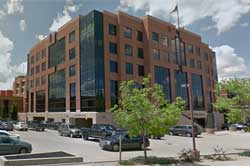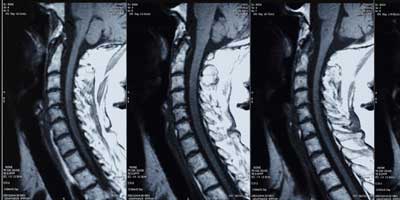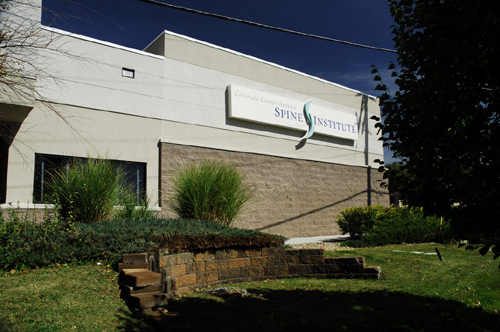Locations

Fax: (303) 762-9292

Spinal Implants and Devices: Artificial Discs

Artificial discs are designed to replace intervertebral discs damaged by spinal disorders such as degenerative disc disease. As the name implies, artificial discs are similar to normal human discs in the neck and low back.
Disc replacement surgery is considered an alternative to spinal fusion in select patients. Spinal fusion fuses or permanently joins two (or more) vertebral bodies and eliminates movement at that level. An artificial disc works differently - it allows movement by mimicking the properties of a human disc. In theory, disc replacement protects other discs by sharing the stress during movement.
There are many different artificial disc designs. Implant composition includes hard (metal) and soft (nonmetal) materials.
- Metal, such as stainless steel
- Nonmetal, such as polyethylene
- Combination
An artificial disc replaces the entire intervertebral disc - the annulus fibrosis, nucleus pulposus, and usually the endplates, depending on the type of device.
Patient Selection Important
Since artificial discs are not indicated to treat all spinal disorders or patients, assessment by a skilled spinal surgeon is essential. If an artificial disc is a good choice for you, your surgeon will explain the type of device to be implanted. Along with information about the artificial disc, you will learn about the benefits and risks of the device and procedure.
Conclusion
Our surgeons use the latest technologies in spine care and believe artificial discs benefit carefully selected patients. If you have questions, please talk to your surgeon to find out if disc replacement is suitable to treat your spinal disorder.








